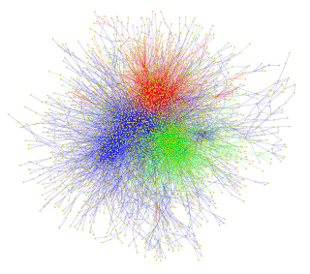 Depiction of the human proteome, binding interactionsFLICKR, DUNCAN HULL (VIA A.D. LANDER, BMC BIOLOGY)The announcement by tech billionaire Sean Parker, the founder of Napster and first president of Facebook, of his plans to donate $250 million to cancer research is not as large a departure from his file-sharing roots as it might at first seem. Parker’s pledged support includes both the funding and sharing of cancer immunotherapy results.
Depiction of the human proteome, binding interactionsFLICKR, DUNCAN HULL (VIA A.D. LANDER, BMC BIOLOGY)The announcement by tech billionaire Sean Parker, the founder of Napster and first president of Facebook, of his plans to donate $250 million to cancer research is not as large a departure from his file-sharing roots as it might at first seem. Parker’s pledged support includes both the funding and sharing of cancer immunotherapy results.
Traditionally, many in the biopharma industry have been fearful of open data. Patents rule in this highly competitive marketplace, and being first to market a drug or medical device can bring shareholders huge financial rewards. Fortunately, there is new recognition of the essential role of open data to advance biomedical research, particularly in context of public health emergencies.
Two recent public health emergencies, outbreaks of Ebola and Zika viruses, are dramatic examples of how data sharing has already accelerated scientific insights toward disease prevention and treatment. Because of the urgency of these global threats and the clear advantages of sharing research freely, many scientific journals—otherwise designed to maximize profits by limiting access to subscribers—have agreed to make research on these viruses freely available.
This unusual ...




















